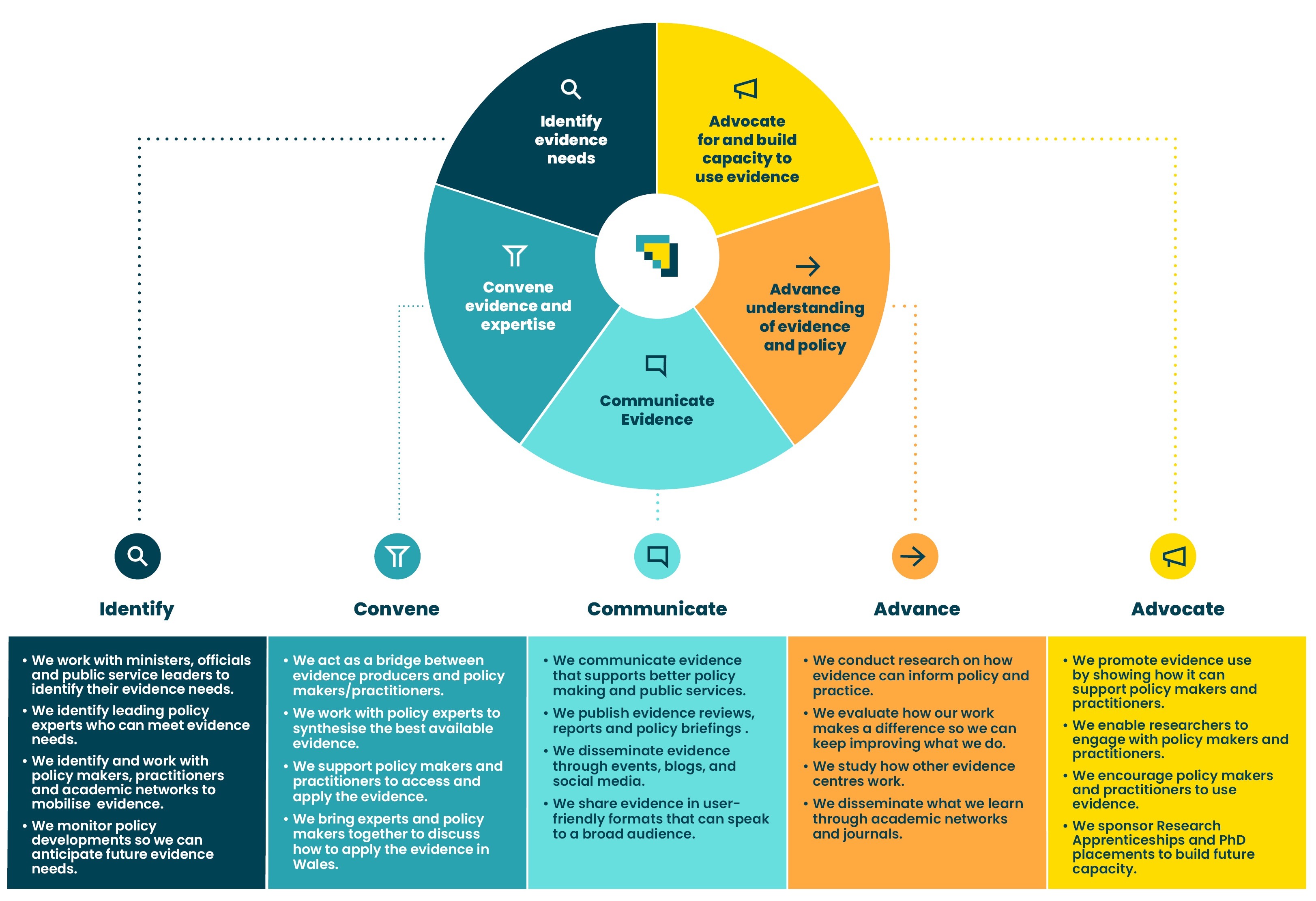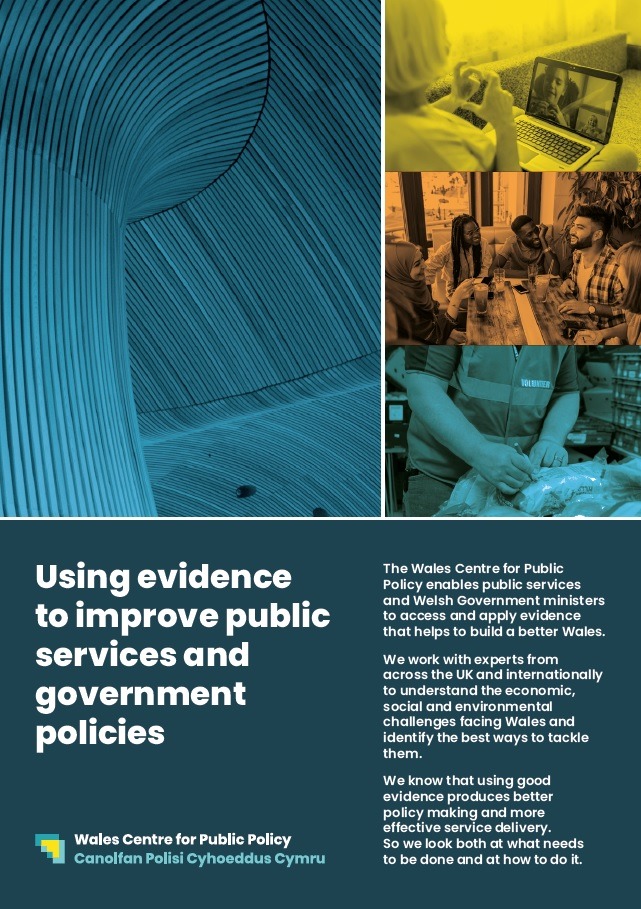Using evidence to improve public services and government policies
The Wales Centre for Public Policy enables public services and Welsh Government ministers to access and apply evidence that helps to build a better Wales.
We work with experts from across the UK and internationally to understand the economic, social and environmental challenges facing Wales and identify the best ways to tackle them.
We know that using good evidence produces better policy making and more effective service delivery. So we look both at what needs to be done and at how to do it.

How we work
We set out to inform policy and practice by answering five questions:
1. What evidence do policy makers need?
Identifying what evidence is needed is an important first step towards improving government policy and public services.
We work with ministers, officials, and public service leaders to identify the evidence they need to answer questions which span a wide range of policy areas.
We also monitor emerging policy developments in Wales, and beyond, so we can anticipate and respond to future evidence needs.
2. What does the evidence say?
There are lots of types and sources of evidence. We help policy makers and public service leaders to access and apply evidence by synthesising the key messages from independent research and leading experts.
We want policy makers and public service leaders to have the best available evidence. So, once we have identified what they need, we analyse the existing research and who the leading experts are.
By bringing together evidence from experts – in Wales, the rest of the UK and internationally – we play an important convening role, supporting ministers and public service leaders to access independent evidence and helping experts to speak directly with them.
We commission experts to write reports with us and invite others to peer review our work. We also organise workshops so that policy makers and public service leaders can hear from experts and use social media and podcasts to share the evidence more widely.
3. How can we communicate the evidence?
We believe that evidence should inform policy making and public services and we communicate evidence in ways which facilitate this.
That is why we produce a variety of outputs in a range of formats that are tailored for specific audiences. Our work is disseminated through reports, briefing papers, blogs, podcasts, press and traditional media, social media, research papers, conferences, roundtables, and events.
We make our findings accessible and ensure that they are communicated clearly to our policy makers and public service leaders. All our reports and policy briefings are written in clear, non-specialist language, and can be downloaded from our website.
We aim to be a trusted, independent source of evidence. Our publications are, therefore, thoroughly checked to ensure that they are accurate and reliable.
4. How does our evidence inform policy and practice?
We aim to advance understanding of how evidence can inform government policy and the delivery of public services.
We do this by analysing the impact that our work has and reflecting on what has worked and what hasn’t. Drawing on our own experiences and those of other evidence producers, we gain insights into how evidence is used in policy making and practice. We share what we learn with the What Works Network and disseminate our findings through academic conferences and journals.
The case studies, featured in the document below, outline our work on the impact of Brexit, children looked after, and sharing best practice across the What Works Network, and illustrate some of the ways in which we track the impact of our research. These include collecting data such as the number of times our work is cited in government policy documents and ministerial statements.
5. How can we encourage the use of reliable evidence?
We advocate for evidence use by demonstrating its usefulness to policy makers and public service leaders and helping researchers to engage with them.
We aim to increase policy makers’ and public service leaders’ understanding of the value of reliable evidence. We know that policy making is complex and that it can be difficult for those outside of government to know how to present their evidence. So, we also help experts to engage with the process.
Our Research Apprenticeship programme and PhD internships are equipping a new generation of researchers to undertake policy-relevant research and communicate with policy makers and public service leaders.
 Click to download as PDF: What we do and how we do it
Click to download as PDF: What we do and how we do it